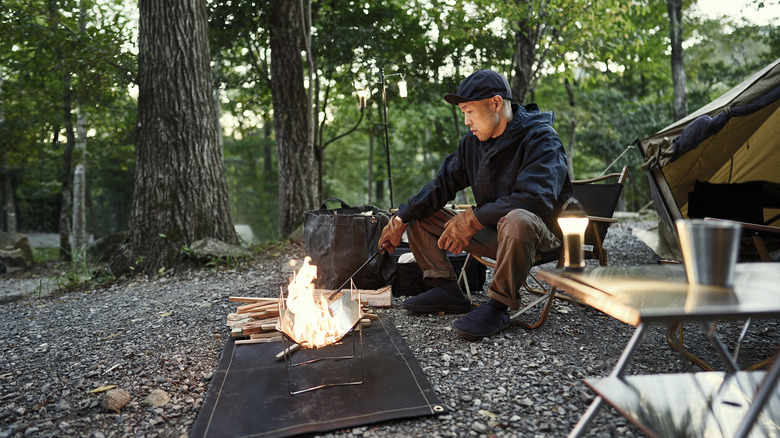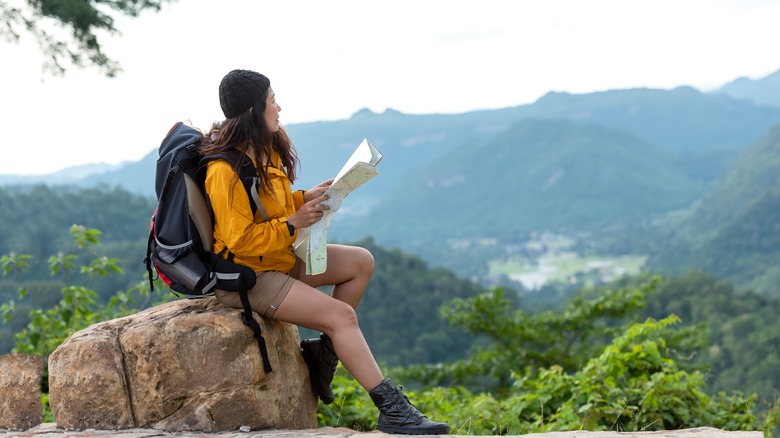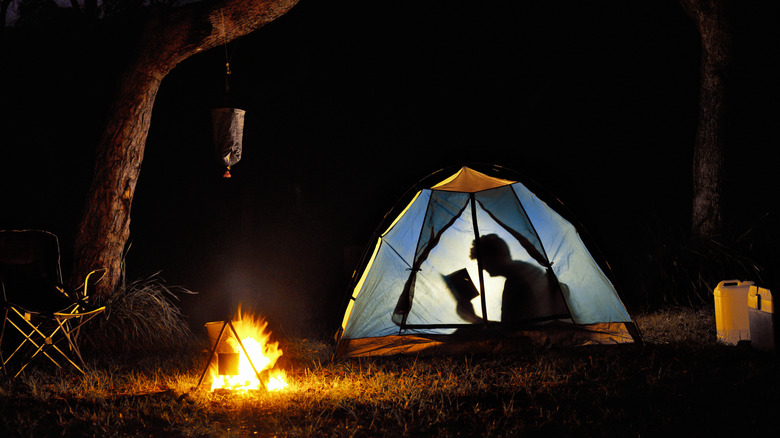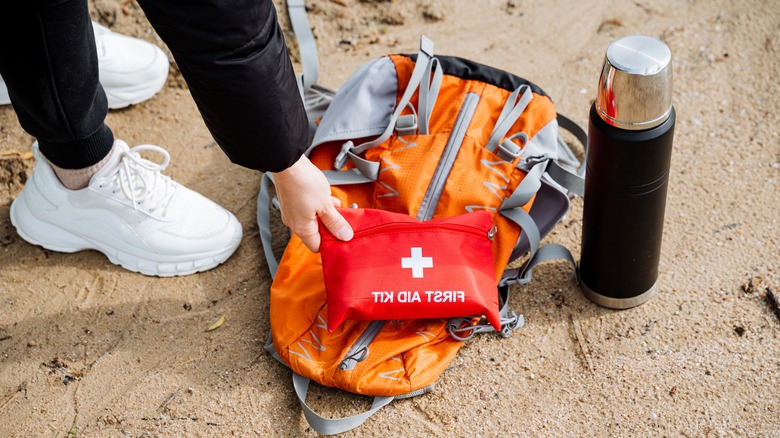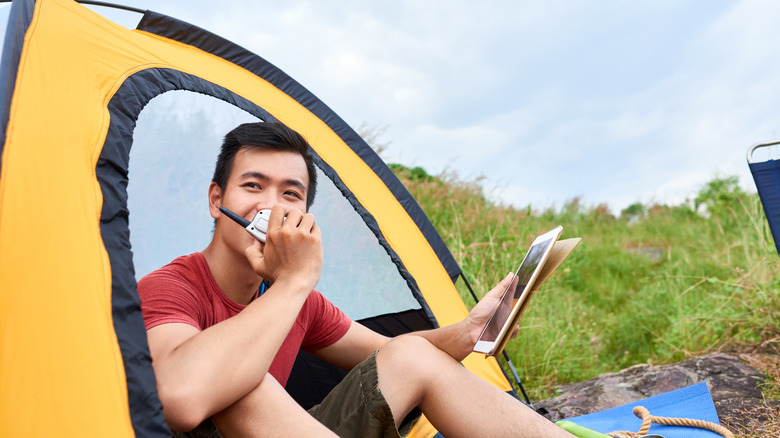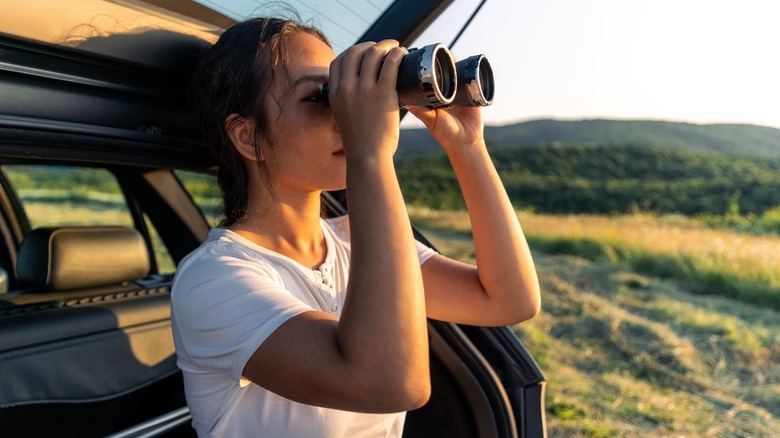Ensure A Safe Solo Adventure By Taking These Important Steps
While it is enjoyable to spend time outdoors with family and friends, there are times when a solo adventure may be in order. Some of the most consistently cited reasons for going afield unaccompanied include exploring at your own pace, creating a deeper connection with nature, building self-confidence, and reduced potential for stress that often unintentionally comes with human interactions.
Whatever the reason, if you are planning a solo adventure, there are a few things you need to know before camping alone or taking a solo backpacking trip. It goes without saying that anyone adventuring alone needs to have the basic skill set for their chosen outdoor endeavor, whether it's hiking, backpacking, paddling, trekking, or camping. However, one thing about being outdoors, you can never fully predict how things may unfold. Even the most skilled adventurers will have to deal with unexpected happenings and circumstances. With that in mind, you can ensure a safe solo adventure by taking these important steps.
Know your abilities and plan accordingly
As the idea of a solo outdoor adventure begins to percolate in your mind, the first thing you need to do is honestly assess your abilities and skill level. Then, plan accordingly. If you have never been hiking or camping at all, it is probably best to take a trip or two with a partner or group before heading out on your own. This will allow you to obtain some skills and experience that will serve you well on your solo adventure.
However, whether you are a novice, intermediate, or advanced adventurer, you need to plan a solo trip that does not exceed those abilities. For hiking, climbing, or backpacking, make sure the technical difficulty of the route isn't beyond what you are capable of doing. If you plan to camp, it is important to pack supplies that you can utilize with your skill set. For example, if you are not proficient at starting a campfire, don't plan on turning uncooked foods into delicious campfire meals. Rather, it is more practical to pack ready-to-eat meals. Additionally, make sure to correctly store food. Since you will be camping alone, there will be no one else's supplies to scavenge from if yours spoil or get wet.
Let someone know, but don't advertise that you're alone
Any time you are heading on an outdoor adventure, whether solo or in a group, it is always important to share your plans with someone who will not be involved in the trip. For hiking, backpacking, paddling, and other activities, choose your route ahead of time and share it with a trusted friend, along with your departure and expected return times. While it may be tempting to veer off course to explore, it is important to stick to your route and planned itinerary in case of an emergency. Otherwise, the info you shared will be limited in use. Until you've logged a few solo trips, it is probably best to stick with well-known trails and routes.
While it is important to let someone know your plans before heading out, it is equally important for safety not to let the world know you will be alone in the outdoors. Refrain from posting your plans or location on social media — at least until you've returned from your trip. While overnighting, don't draw attention to the fact you are alone in camp. In that regard, staying in an actual campground such as a state or national park or KOA can provide some degree of safety while camping alone.
Be prepared to handle emergencies
Any time you are adventuring outdoors, you need to pack essential emergency supplies and be prepared to handle whatever emergency may arise. However, there is one huge difference between a first-aid situation on a group outing and hurting yourself on a solo hike. When you are alone, there is no one else to help. So, you need to not only know how to properly use supplies and respond to various first aid-type emergencies, you need to be able to mentally handle performing these tasks on yourself. If you do find yourself with a first aid emergency on a solo trip, it is important to stay calm, assess the situation, attempt to call for help, and provide treatment to yourself.
Beyond slips, falls, and other similar physical accidents, adventuring outdoors always presents potential hazards from various wildlife. Before heading out on a solo adventure, be sure you are aware of what animals are present in the area you will be exploring and educate yourself on how to handle a potential encounter. For instance, know what to do if you come across a coyote on a hike or are charged by a bear. As a general rule of thumb, it is a good idea to stay a safe distance from any animals you encounter. Additionally, if spending time outdoors in bear country, it is advisable to carry bear spray and know how to use it.
Have a way to communicate with others
While unplugging from society may be atop the reasons to take a solo adventure, it is still vital for your safety that you have a way to reconnect in a hurry if things don't go as planned. Of course, when it comes to communication, cell phones are what most people envision. There are certainly many advantages to cell phones. In addition to being light and portable, they allow you to communicate in a variety of manners — voice, text, email, etc. They can also be used to take photos or, with any number of possible apps, navigate along trails and waterways. However, they also can lose signal at inopportune moments. This may not be much of an issue if you are staying within the confines of an established campground facility, as it is estimated over 80% of campgrounds in the U.S. now have Wi-Fi, as revealed by ABC News.
If you are venturing further into the backcountry, however, cell service can become unreliable. Handheld VHF radios have long been the communication tool of choice for hikers, campers, hunters, and fishermen venturing in remote locations. Satellite phones are another option. But, according to Outside, there are a couple of products that can be effectively used to connect your cell phone to satellites to allow you to send texts or SOS messages even when outside cell service or Wi-Fi coverage areas. There are also a variety of stand-alone satellite communication devices on the market that serve this same purpose.
Be aware of your surroundings and the weather
Before you head out on any outdoor adventure, it is important to check the weather forecasts. This will help you pack the proper gear, plan appropriate activities, or, if necessary, cancel or reschedule the trip for a time when the forecast is more favorable. It can also help with choosing the appropriate place to set up camp for overnight excursions so that you avoid any heavy rain runoff or flooding.
Once in the field, it is equally important to be observant of conditions, as the weather doesn't always follow the forecast. Additionally, it is important to be aware of your surroundings for other potential hazards, such as dangerous wildlife and particularly tricky spots on trails, as well as possible resources like springs of freshwater or wood for a campfire. It is also important to be cognizant of other people in the area. While you don't want to be paranoid and overly afraid, it is a good idea to make note of any people who see in the parking lot, near a trail head, on a trail, or in a campground. Steer clear of anyone who appears suspicious or intoxicated. Don't hesitate to call authorities or leave the area if someone is causing you concern.
